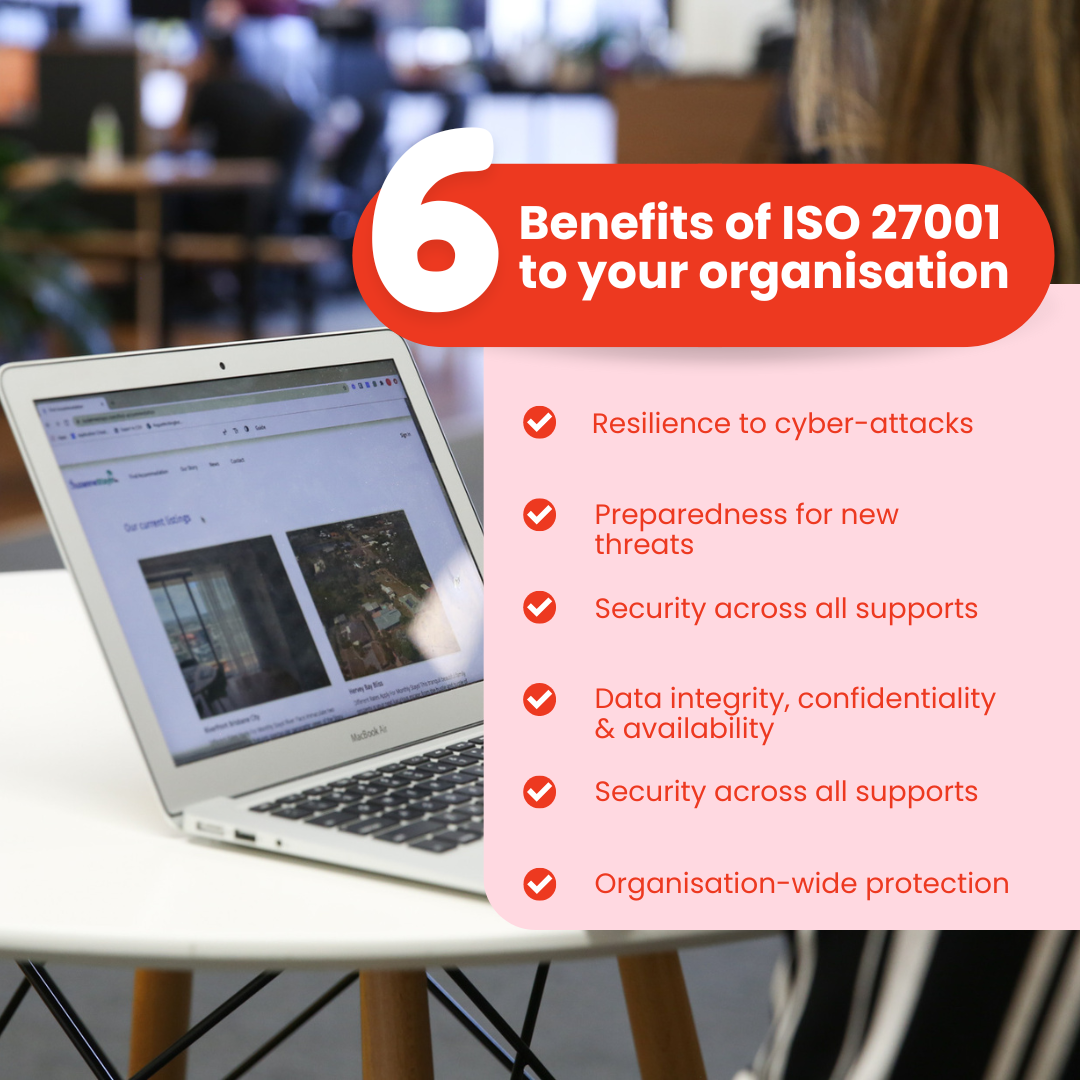
Securing the Future - Decoding ISMS
In today’s world, protecting information assets and ensuring business continuity has never been more critical. The global average cost of a data breach is projected to reach $5.00 million in 2025, reflecting the growing complexity of cybersecurity risks and operational challenges.
Information Security Management System
An Information Security Management System (ISMS) is set of policies and procedures designed to systematically protect an organisations sensitive data. The primary objective is to minimise risk and ensure business continuity by proactively mitigating the likelihood and impact of a security incident.
The international management system standard ISO 27001 emerges as a powerful tool, assisting organisations in developing and maintaining their ISMS. This standard offers a comprehensive framework containing documentation, internal audits, continual improvement, and corrective and preventative actions.
Benefits of an ISMS
-
Protecting sensitive data
Acts as a fort, guarding all types of information assets, whether they’re stored on paper, preserved digitally on premises, or reside in the cloud. This includes personal data, intellectual property, financial records, customer information, and data entrusted within the company.
-
Regulatory compliance
Helps organisations navigate regulatory and contractual requirements. Providing a deeper understanding of the legal landscape surrounding information systems.
-
Ensuring business continuity
Organisations can enhance their defence against threats, reducing the frequency of security incidents. Fewer disruptions and less downtime benefit is important for business continuity.
-
Encouraging company culture
Encourages all employees to comprehend the risks associated with information assets and to adopt security best practices as part of their daily routines.
-
Adapting to emerging threats
Security threats are dynamic and constantly evolving. An ISMS prepares organisations to anticipate and adapt to new threats through.
ISO 27001
Taking proactive measures are essential to ensure the confidentiality, integrity, and availability of sensitive information. ISO 27001 is the gold standard in managing an Information Security Management Systems (ISMS).
Why is ISO 27001 important?
ISO 27001 is globally renowned for being the benchmark for Information Security Management and is recognised and respected across the world. Regardless of an organisations size or industry, the comprehensive framework offers guidance for establishing, implementing, maintain and improving an ISMS. Achieving and complying with ISO 27001 means that an organisation has established a robust system for managing risks related to data security, aligning with the best practices and principles outlined in this international standard.
With cyber crime on the rise and new threats emerging constantly, managing cyber risks can be overwhelming. ISO 27001 assists organisations to develop the resources to become risk-aware and proactively identify and address vulnerabilities.
ISO 27001 encourages organisations to approach information security holistically, examining people, policies, and technology to ensure comprehensive protection. An Information Security Management System implemented in accordance with this standard becomes a powerful tool for risk management, cyber resilience, and operational excellence.

Principles of ISO 27001
ISO 27001 is built on three foundations, each vital in the protection of data.
-
Confidentiality
Ensuring that only authorised personnel can access an organisations information. Consists of preventing unauthorised access and maintaining the secrecy of sensitive data.
-
Information Integrity
Focuses on safeguarding data from tampering, deletion, or damage. Ensures that the information an organisation uses for its operations remains unaltered and secure.
-
Availability of Data
Underscores the importance of accessibility. Information must be available whenever it’s needed by the organisation or its clients to meet business needs and customer expectations.
Who needs ISO 27001?
All businesses should consider their information security, cyber-attacks are risks that all organisations need to factor in. The benefits of ISO 27001 would be beneficial to companies across all economic sectors regardless of the industry because of the risk management process that is adapted to a company’s size and needs.
To achieve an ISO 27001 certificate an organisation must implement an ISMS that identifies its critical assets and conducts a comprehensive assessment covering:
- The risks facing information assets
- Protective measures in place
- A contingency plan in case of a security incident
- The assignment of responsibilities for each step of the information security process
NEXT: How WorkingMouse models and maintains our ISMS through Codebots and Kanban boards.






